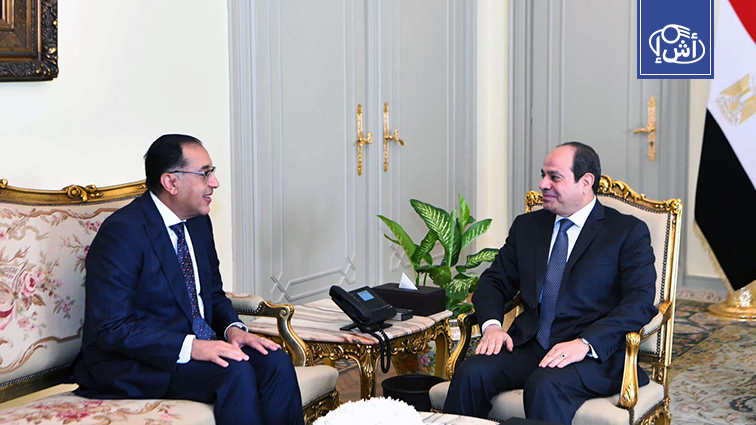Egyptian Prime Minister Mostafa Madbouly submitted his government’s resignation to President Abdel Fattah El-Sisi on Monday.
Al-Sisi assigned Madbouly to form a new government that includes distinguished competencies and expertise to achieve specific goals.
In his assignments, Sisi focused on a number of goals, including preserving Egyptian national security in light of regional and international challenges, and placing the issue of building the Egyptian human being at the top of priorities, especially in the fields of health and education.
Al-Sisi directed the new government towards enhancing political participation and developing security, stability and combating terrorism issues, and called for developing culture and national awareness and consolidating the concepts of citizenship and societal peace.
كلفت اليوم الدكتور مصطفى مدبولي بتشكيل حكومة جديدة تضم الخبرات والكفاءات اللازمة لإدارة المرحلة القادمة، وذلك لتحقيق التطوير المرجو في الأداء الحكومي ومواجهة التحديات التي تواجهها الدولة.
— Abdelfattah Elsisi (@AlsisiOfficial) June 3, 2024
The Egyptian President also stressed the need to continue the path of economic reform, with a focus on attracting local and foreign investments, encouraging private sector growth, and controlling prices and inflation.
For its part, the government raised the price of a loaf of subsidized bread on ration cards from 5 piasters to 20 piasters, as of June 1, noting that its cost had risen to 125 piasters according to the provisions of the state’s general budget.
The Egyptian government resorted to proactive decisions to confront the enormous pressure exerted by the International Monetary Fund mission in Cairo, which includes gradually lifting subsidies on the prices of bread, electricity, and gasoline. The government confirmed its intention to completely cancel in-kind (food) support and replace it with cash support.
Egypt is seeking to obtain a new accreditation certificate from the International Monetary Fund to secure financial flows estimated at about $12 billion during the current year from international institutions such as the World Bank and the European Union.
The government aims to use these flows to finance infrastructure projects with simple interest to be paid over long periods.
Egypt’s external debt rose to $168.04 billion at the end of last December, an increase of $3.5 billion in three months.
The percentage of external debt has increased by 271% since Sisi took power in 2014, when the external debt at that time did not exceed $45.2 billion.
The Egyptian citizen’s share of foreign debt amounted to about $1,444.5 in the first quarter of the 2023-2024 fiscal year, compared to $1,360.7 in the same period of the previous fiscal year.
The new government faces great challenges to achieve a balance between necessary economic reforms and alleviating the burdens on citizens, in light of the major economic and political changes that the country is going through.
Egypt..Two young people attempt suicide due to rejection of their marriage proposal
